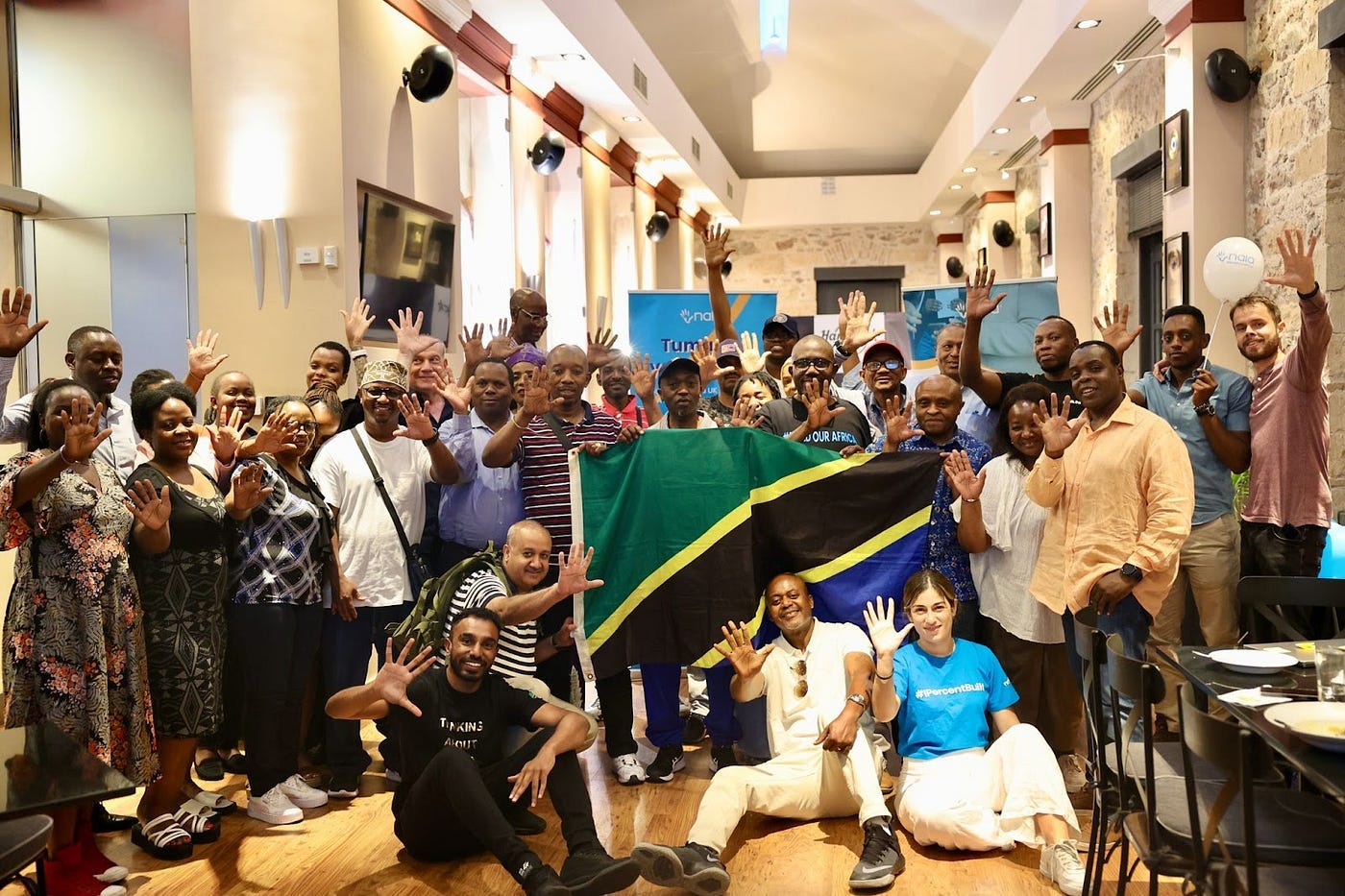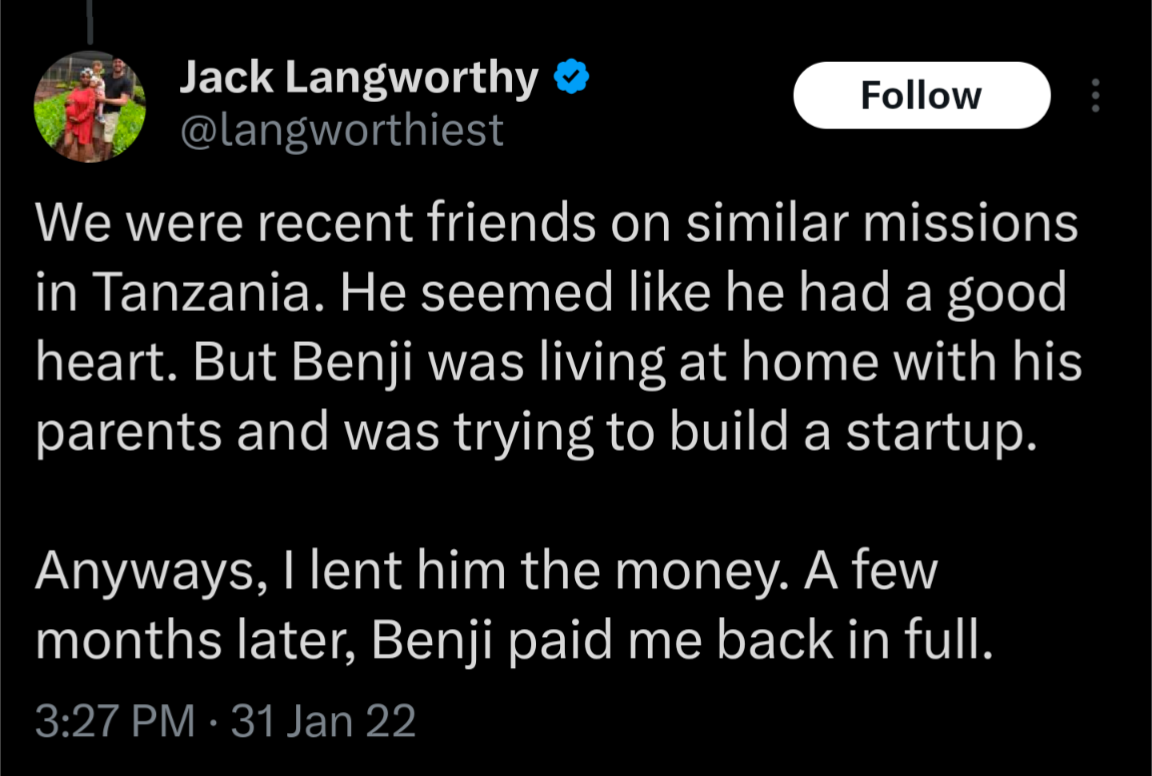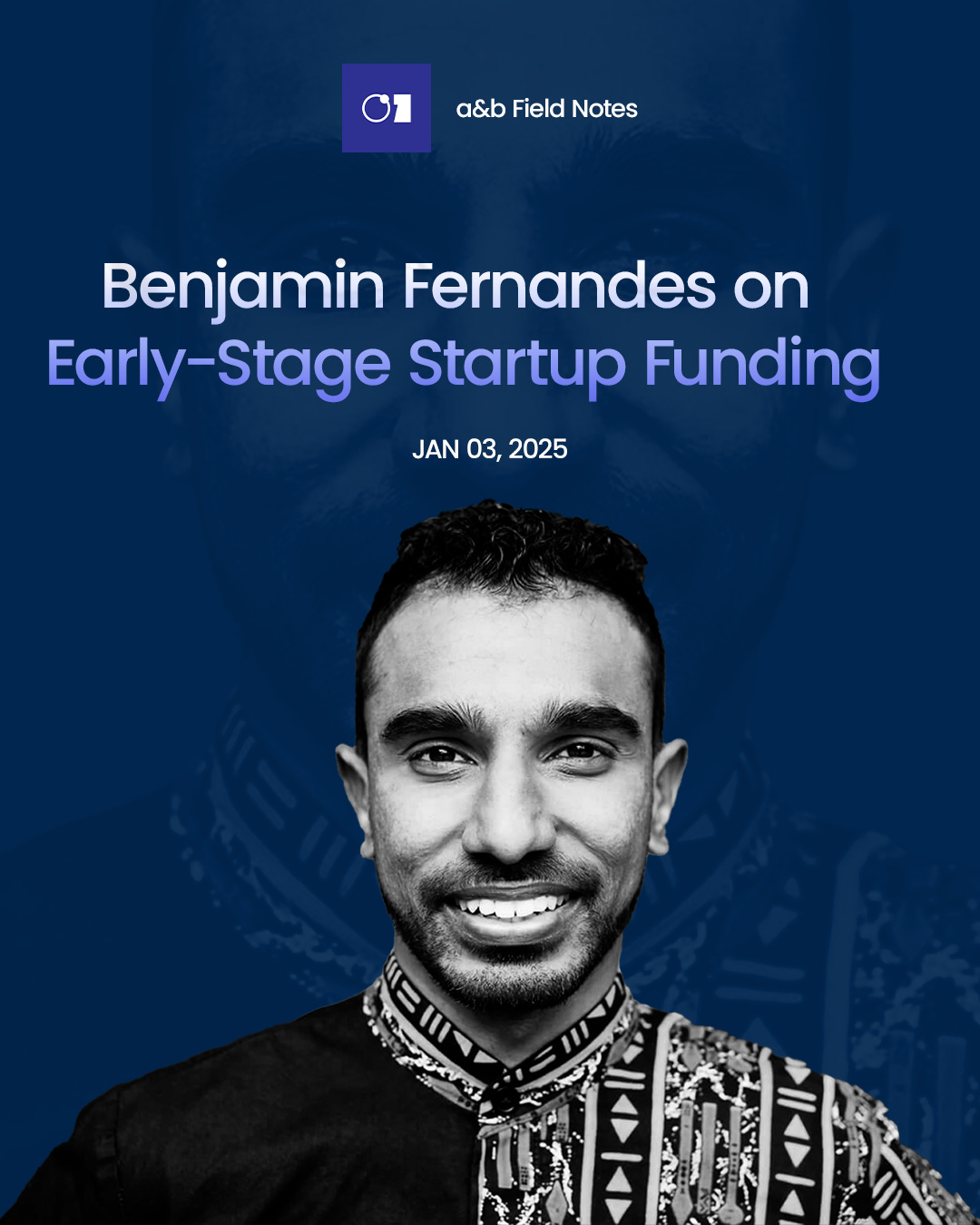Fred Swaniker, the Ghanian-born cofounder of the African Leadership Academy (ALA), challenged Benjamin Fernandes with a simple test that shaped NALA’s early fundraising:
“If you can not raise $20,000 from your friends right now, you’re not serious about what you're trying to build.”
That advice led Fernandes to develop a practical approach for early-stage company financing in Tanzania.
Testing the Market
“Every single person that gave me money, I told them before you wire me—even if it’s $500—are you 100% okay with never seeing this money again?” he warns.
“If the answer is no, I do not let them wire money to me. If they say ‘this is my entire paycheck for this month,’ I also say no. I tell people to only give me what they don’t mind losing.”
Rather than seeking large initial investments, Benji advocates testing market interest through small, focused raises and efforts:
“The mistake most people make is thinking they need a lot of money at the beginning.”
He often asks founders, “What’s the easiest, fastest, simplest, or cheapest way to test if:
There’s a need (for your product)?
Customers are willing to pay for it?”
Capital Discipline
His grassroots funding approach emerged partly from necessity.
He points out a key ecosystem difference:
“What made Americans and, more recently, Asians really good (at entrepreneurship) is that they have created a huge pool of cheap, patient, and easy-to-access venture capital.”
The finance gaps in African countries means founders must be more creative and efficient with initial capital.
Benjamin encourages you to challenge cultural norms around business funding in Tanzania, noting that “we’re so used to donating for weddings or funerals… why don’t we donate when somebody starts a business?”
He believes that day one supporters should view their contribution as an investment opportunity:
“It’s not charity they’re investing in NALA.”
This lean approach shaped NALA’s early market entry strategy.
In 2022, Fernandes started with minimal infrastructure, personally distributing flyers and organizing small customer events in new markets.
Such ground-level engagement helped his company identify real customer needs and build their initial user base.
Path to Profitability
While competitors expanded aggressively and spent heavily on marketing, NALA maintained strict capital discipline.
“Our competitors had raised a lot more money than we had,” Fernandes recalls, explaining how they often had to decline sponsorship requests and marketing opportunities.
This disciplined approach extended to personal sacrifice, such as taking salary cuts to extend runway between funding rounds.
Fortunately, the focus on capital efficiency paid off.
Within 20 months, NALA grew from 10,000 to 500,000 customers, achieved profitability, and scaled revenue 10x to $10 million annually.
This demonstrated traction attracted venture capitalists (VCs), leading to its $40 million (nearly TZS 100 billion) raise in 2024.
According to Benji, that milestone was reached after “eight years of grinding 80 to 100-hour weeks.”
In fact, Fernandes’ early FFF (friends, family, and fools) investment approach proved crucial when VCs initially dismissed NALA’s pivot to cross-border payments (in 2020).
Many potential investors warned that competing with established players like WorldRemit and TransferWise would be impossible.
However, by focusing on becoming profitable and building something people want, NALA attracted significant VC interest.
“When we became cash flow positive, that's when earlier skeptical investors started returning,” Fernandes explains. “If you can generate profit while solving real needs, then people say ‘wow this teams is serious about what they’re trying to build.’”
Conclusion
Yet, Benji isn't distracted by fundraising milestones.
He remembers one of his board member's wisdom: “The chef does not celebrate getting the ingredients.” The real work, he emphasizes, comes in building sustainable value with those resources.
For founders starting out, Benjamin Fernandes stresses the importance of falling in love with the problem instead of the solution.
“The idea will change, the product will change, it all evolves,” he says. Don't get caught up in perfecting your initial concept.
Always, just start.
Why?
A problem-first mindset led NALA to expand beyond consumer payments into Rafiki, its business payments infrastructure (API) for global companies looking to process transactions across African markets.
Discover More
Full video: Stories Next Door Podcast with Benjamin Fernandes, “From Tanzania to +$50M: What No One Tells You About the Journey.” (December 2024).








